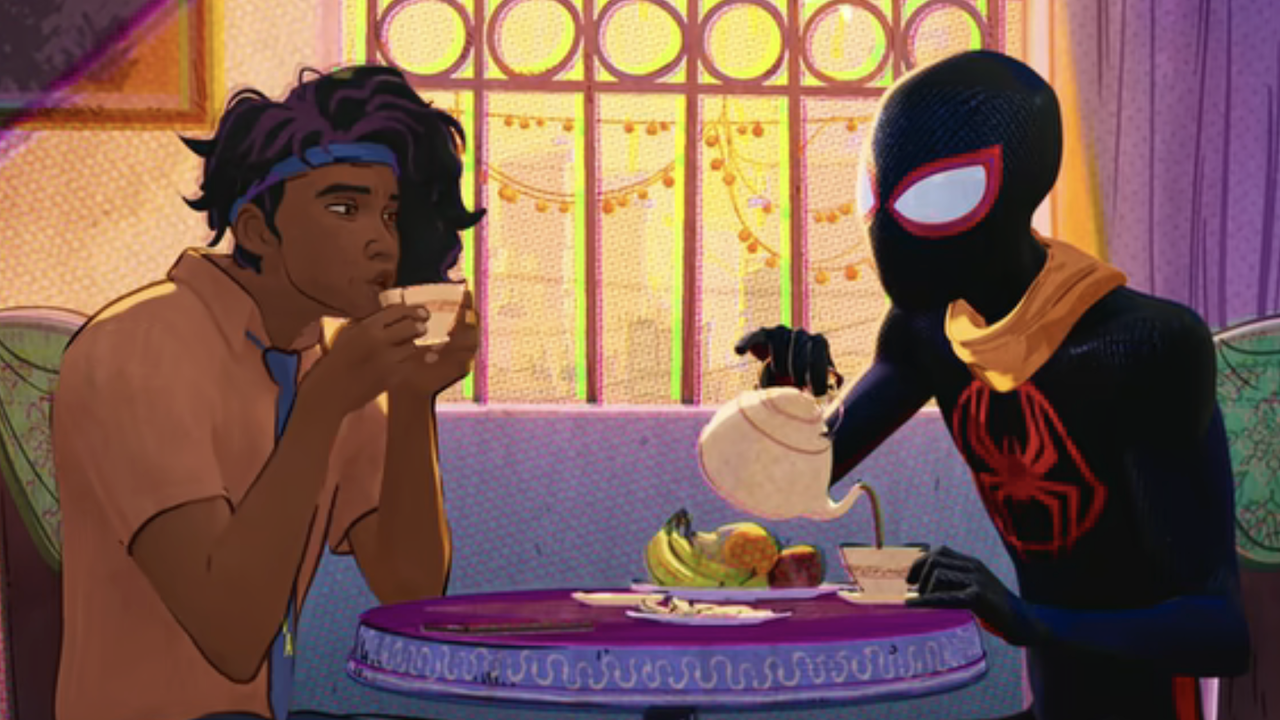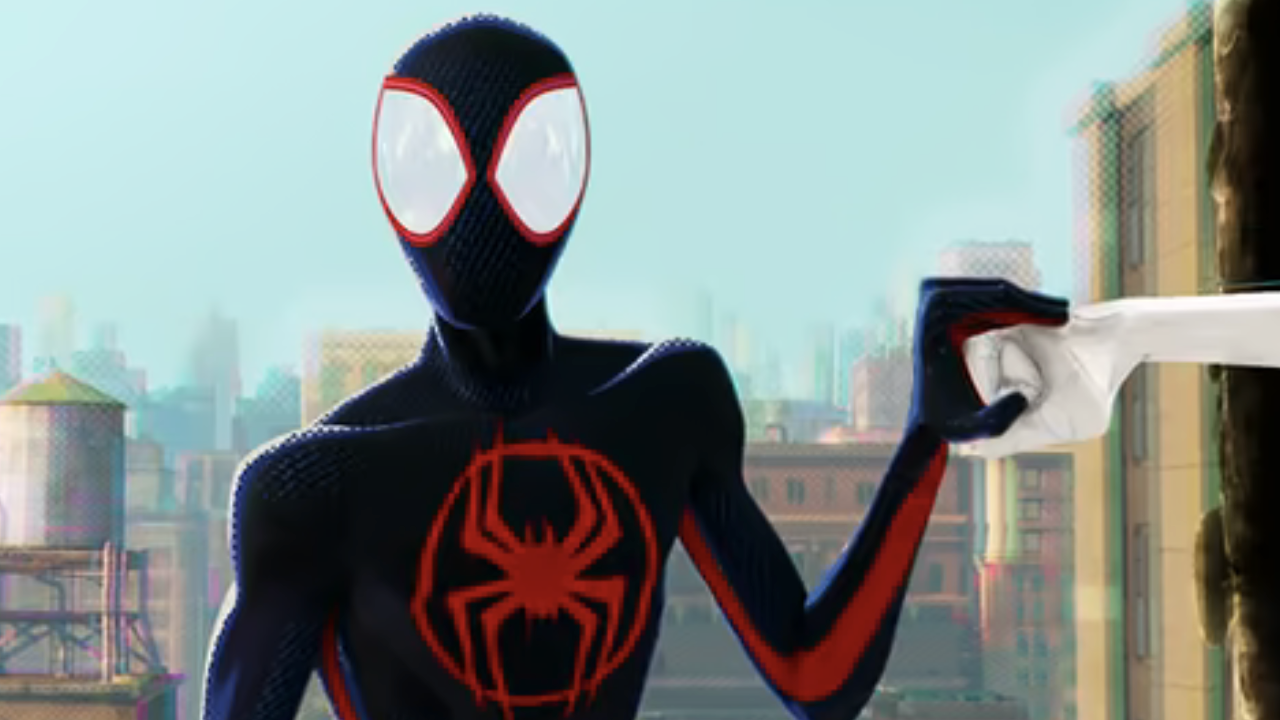
We have to have this conversation again? Alright, in the words of the immortal Spider-Man (as voiced by Chris Pine), “Let’s do this one last time.”
We are approaching year’s end, when theaters and streaming services start to fill with awards hopefuls that are screening in time to be eligible for Oscar consideration. At the same time, movies that made a critical splash earlier in the year are circling back around, to drum up support for the Oscar campaigns. One such film is the incredible Spider-Man: Across the Spider-Verse, the second part of a planned trilogy that will conclude – hopefully in 2024 – with the highly anticipated Spider-Man: Beyond the Spider-Verse. The animated Across the Spider-Verse is easily one of the best Spider-Man movies ever made, and one of the best movies released this year. So it must be a Best Picture contender, right?
Right?!
Already, the conversations are starting online, and in some of the columns written by Oscar pundits. “It’s a great animated movie. But is it really a Best Picture movie?” This has prompted Phil Lord, one of the brilliant creative voices beyond the Spider-Verse movies, to scream into the void:
Animated films are films Animated films are films Animated films are films Animated films are films Animated films are films Animated films are films Animated films are films Animated films are films Animated films are films Animated films are films Animated films are films…December 5, 2023
Say it louder for the people in the back. Why is this even a discussion? Any film released during the calendar year should contend for Best Picture. This should include documentaries, foreign-language films, and yes, animated movies. Some people who appear to be opposed to including Spider-Man: Across the Spider-Verse in the Best Picture conversation are raising flimsy arguments, which I’d like to address.

‘It feels like half a movie.’
So what? Denis Villeneuve delivered half of an adaptation of Frank Herbert’s Dune in 2022, and earned a Best Picture nomination. Peter Jackson had all three installments of his Lord of the Rings trilogy in the conversation for Best Picture, and eventually triumphed with the concluding chapter, The Lord of the Rings: The Return of the King. Did anyone attempt to argue that Return of the King felt like “the last third” of a full story? Maybe, but that sounds as stupid as calling Across the Spider-Verse half of a film.
In this particular story, we see incredible growth and maturation for key franchise characters Miles Morales (Shameik Moore) and Gwen Stacy (Hailee Steinfeld). We are introduced to several new and rewarding characters who bring incredible depth to the world and only increase the stakes in the ongoing storyline – from The Spot (Jason Schwartzman) to Miguel O’Hara (Oscar Isaac), and the multiverse that he’s holding together. Sure, Across the Spider-Verse ends on a cliffhanger, but how is that any different from the open-ended stories being told in Joker, Black Panther, Avatar: The Way of Water, and other films that recently earned Best Picture nominations?
It’s not.

‘It’s a Shoo-In for Best Animated Feature.’
Totally agree. But special movies like Spider-Man: Across the Spider-Verse shouldn’t be content with being relegated to a side category, never having a shot at the night’s top prize.
There’s precedent for animated movies earning a Best Picture slot. Specifically, the Pixar masterpieces Up and Toy Story 3 were nominated for Best Picture AFTER the inception of the Best Animated Feature category at the Academy Awards. (“But didn’t Toy Story 3 feel like one-third of a story?!” No, it didn’t.) Some movies deserve recognition in both categories, because of the way they push the boundaries of storytelling and filmmaking within their medium. The screenwriting, direction, art design, production design, editing, and score for Spider-Man: Across the Spider-Verse are better than most films you will see all year. The movie, from start to finish, is one of the year’s best films. Put it in the race for Best Picture. Not just Best Animated Feature. Best Picture.

‘You’re Just a Spider-Man Fan.’
I am! And I’m lucky to live during a time when the film industry appreciates the deep well of stories that are possible around this fascinating character. Peter Parker, alone, creates live-action possibilities that span generations of movies (see “All of the Spider-Men coming together” in the groundbreaking Spider-Man: No Way Home). But when the Spider-Verse movies open up the realm to stories that include Miles Morales, Gwen Stacy, Spider-Ham, Spider-Woman, Spider-Noir, Spider-Punk, and beyond, it stretches the reality of inclusion, the excitement of multiverse hopping, and the limitations of anyone’s creativity.
That’s what Spider-Man: Across the Spider-Verse does, repeatedly. It takes a story, and a medium, that we loved in the Oscar-winning Spider-Man: Into the Spider-Verse, and it advances it. It fleshes out the characters, building on the issues they experienced in the first movie while also setting the stage for complicated solutions in the inevitable sequel. And it reinvents the animation that already was considered groundbreaking in the first place. My mind still melts over the way that Spider-Verses uses different animation styles such as watercolor, LEGO, and that jaw-dropping pencil-and-pixel hybrid in Mumbattan to bring its opposing universes to life. Watching Spider-Man: Across the Spider-Verse sometimes feels like you are seeing animation for the first time. It’s that revolutionary.
And why stop at Best Picture? Let’s also make sure that Spider-Man: Across the Spider-Verse is in contention for Best Score. Because the work of Daniel Pemberton on the music of Spider-Verse is nothing short of genius. Listen to him describe his process on our official ReelBlend podcast, and try to tell me this master isn’t worthy of Oscar consideration:
It’s my hope that we one day get to a point where this conversation is moot. That enough animated features, foreign language features, and documentary features have demanded the attention that’s afforded a Best Picture candidate, and the existence of separate categories at the Academy Awards doesn’t instantly negate a film’s chances of competing for the Oscars’ top prize. For if a movie like Spider-Man: Across the Spider-Verse is worthy enough to be named the Best version of any genre – animated or otherwise – doesn’t that automatically include it in the conversation of the best picture of the year?







